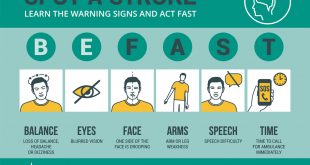By Lynn Schneider, Park Royal Hospital


Extensive research on addiction has concluded that there are certain risk factors that can make a person vulnerable to the development of a drinking problem. Having a family history of substance abuse or addiction, personally struggling with a mental health condition, lacking appropriate coping skills, and being in environments or situations in which stress is prevalent are examples of such risk factors. When these risk factors are a part of a person’s life, there is an increased likelihood that alcohol will be abused. The Centers for Disease Control and Prevention (CDC) estimates that 38 million Americans report drinking too much. Of that number, it is speculated that 17 million people in the United States struggle with an alcohol abuse problem. Many, if not all, of these individuals were vulnerable to alcohol abuse due to the aforementioned risk factors.
Another important bit of information to know is that the development of an alcohol abuse problem is not solely reliant on just risk factors. The reasons why a person drinks can increase a person’s likelihood for developing an alcohol abuse problem as well. When an individual drinks to cope with stress or uses alcohol as a way to escape or avoid unpleasant feelings and/or emotions, the probability of a drinking problem is higher. Additionally, those with a drinking problem will drink for these reasons and continue abusing alcohol despite consequences that occur. Examples of such consequences that can happen when drinking alcohol becomes the center of a person’s world can include academic failure, loss of employment, demise of relationships, and interaction with the legal system.
Additionally, those with a drinking problem may experience withdrawal symptoms when not under the influence of alcohol. These symptoms can include shakiness, increased anxiety, rapid heartbeat, fever, and, in some cases, seizures. These symptoms can be life-threatening and require medical attention in many cases. Furthermore, problem drinking can render the following risks to a person’s health if the abuse of alcohol is long-term:
• Increased risk for alcoholism – physical dependence on alcohol
• The development of cirrhosis of the liver
• Vital organ damage
• The development of certain types of cancer
• Compromised immune system
• Increased chance for heart disease
• Irreversible brain damage
Death is another potential risk that is probable for a person with a drinking problem. In fact, statistics have concluded that nearly 90,000 Americans die each year due to alcohol-related causes, making it the third leading cause of preventable death in this country.
If you feel that your drinking has spiraled out of control to the point where you are experiencing adverse effects in your life and withdrawal symptoms or have been told by a medical professional that you are experiencing the health risks associated with an alcohol addiction, there is help available that can free you from the grips of alcohol addiction.
Park Royal Hospital, a leading provider of mental health and chemical dependency treatment, offers effective and comprehensive care for adults and seniors who are battling addiction and other mental health concerns. Our detox services are monitored by experienced medical staff, who diligently work to minimize the risk and pain of withdrawal. Psychiatrists are available to supervise medication if it is deemed necessary for mental health treatment, and compassionate mental health professionals provide ongoing support for the duration of each patient’s stay at our hospital. Because of these elements, Park Royal is where individuals battling addiction and mental illness can achieve true healing and recovery. Our holistic approach to treatment and varying treatment modalities, which are woven into all of our programs, have ultimately produced countless success stories for many people.
If you or a loved one would like to take that first step towards recovering from alcohol addiction, contact Park Royal to discuss treatment options. The phone line 239-985-2760 is answered 24 hours a day, 7 days a week.
 Southwest Florida's Health and Wellness Magazine Health and Wellness Articles
Southwest Florida's Health and Wellness Magazine Health and Wellness Articles

